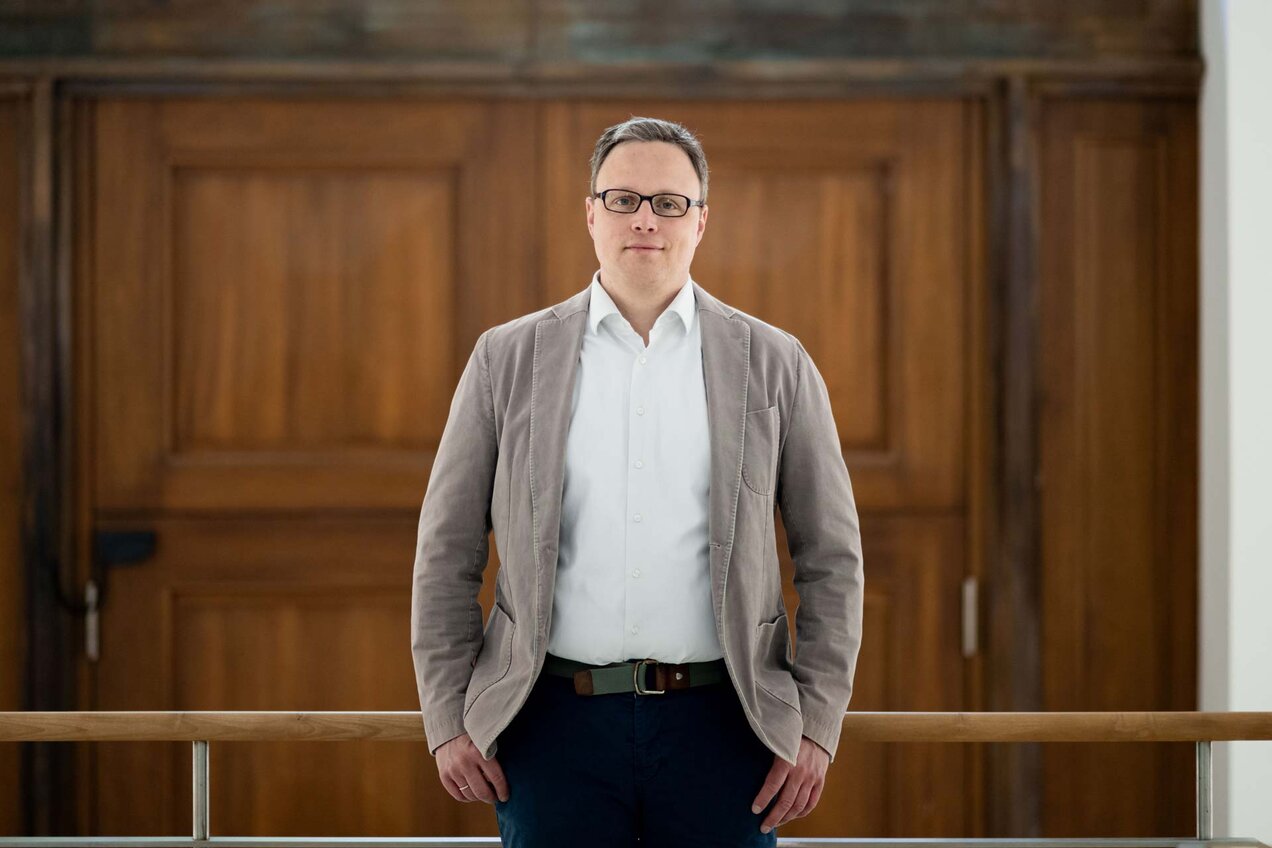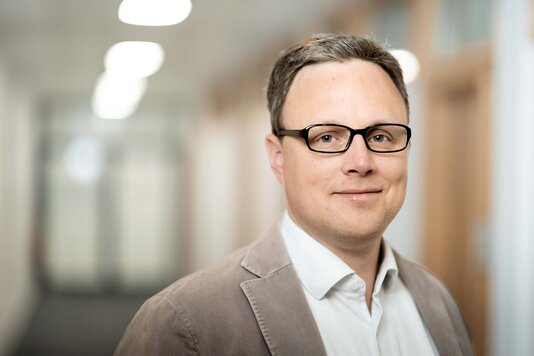
Interview with Matthias Kranke

The ecological crisis is a global phenomenon – its effects do not stop at national borders. Matthias Kranke examines global sustainability issues from a political perspective. In April 2025, he took up a junior professorship at the College for Social Sciences and Humanities. In this interview, we learn how his research group ‘Global Sustainability Governance’ will investigate processes of political governance with regard to social, economic and ecological issues – and what motivates him.
Most recently, after holding various positions in Germany and abroad, I worked as a postdoctoral researcher and lecturer at the University of Kassel. It was there that my great interest in sustainability and post-growth, which I would now like to expand on here at the University Alliance Ruhr, really developed.
I believe that in most cases, working with an interdisciplinary approach is not possible on your own. Few scholars are truly interdisciplinary in their own right. That is why I repeatedly work together with colleagues who come from other fields, such as sociology, ecological economics or environmental psychology.
»‘Post-growth’ refers to a variety of approaches that challenge the idea that sustainability can be achieved within the framework of continuous economic growth. The big question is what alternative concepts could look like.«
In the research group, we will analyse how international organisations – such as the European Environment Agency or the United Nations – deal with post-growth ideas, both theoretically and empirically. Do these organisations stick to the growth paradigm? Or do they critically scrutinise it? What are the possible consequences of such a critical examination of the idea of growth? We will still have to develop the specific research questions as a team. But even then I would not reveal them because the groups we want to investigate through interviews and possibly ethnographic research must not know our central research question. We would otherwise risk influencing their answers or their behaviour too much.
“Global sustainability governance” means that I am interested in processes and dynamics of governing socio-economic-ecological issues beyond national borders. “Post-growth” refers to a variety of approaches that challenge the idea that sustainability can be achieved within the framework of continuous economic growth, as is often claimed or tacitly assumed. The big question here is what alternative concepts could look like and where they have already gained political traction in some form.
Definitely the interdisciplinarity! I am quite “undisciplined” myself because I am frequently interested in topics where disciplinary boundaries tend to be rather a hindrance.
I don't know all the institutes and facilities at the UA Ruhr yet, of course. But beyond the College and the Institute for Socioeconomics at the University of Duisburg-Essen as my two places of work, I already have strong connections to colleagues at the Institute for Development and Peace (INEF). In addition, as part of the Fellow Group Sustainability and Democracy based at the University of Duisburg-Essen, I am in active dialogue with many other researchers within the UA Ruhr.
I have been working regularly with colleagues from abroad for years. An example is a recently published Forum on post-growth in International Relations in the Review of International Studies, which Jacob Hasselbalch from Copenhagen Business School (CBS) and I guest-edited together (introduction). The contributions to this collection come from scholars working at institutions in Asia, Europe and the Americas. I would like to deepen this international outlook by initiating research projects with such colleagues, which will in turn lead to joint publications. In addition, we will establish an annual workshop series on sustainability and post-growth at the College, which will bring together researchers from both the UA Ruhr and other institutions, also from abroad.
I want to contribute to understanding global sustainability issues as explicitly political. And ideally, one day I would like to be able to say that we live in a truly sustainable world. Unfortunately, we are currently miles away from that. Fatally, there are many indications that we are still moving in the wrong direction. That is motivation enough. As a political scientist, I generally find it exciting to ask what could be or might have been different. To find answers, we have to be on the lookout for possible alternatives – i.e., the political – when we analyse social processes of transformation or stability.
The regular scholarly exchange with different lecturers and colleagues at numerous institutions in Germany and abroad has strongly influenced me. After all, we learn many interesting things through dialogue or collaboration with others, rather than by reading a text on our own. At least that is how it is for me.
 ©
© UDE/Fabian Strauch
©
© UDE/Fabian Strauch
Prof. Matthias Kranke
Junior Professor | Research Group 'Global Sustainability Governance'
Phone: +49 201 183 65 67
Matthias Kranke has been Junior Professor of Global Sustainability Governance since April 2025. His current research focuses on the global governance of intersecting social, economic and ecological issues. Within this scope, Matthias pays particular attention to the tensions between the norm of economic growth and the goal of socio-ecological sustainability, asking how much traction ideas beyond growth have gained in key sites of global governance. Trained in International Relations and International Political Economy, he regularly draws on insights from other fields, such as ecological economics, (organisational) sociology or sustainability studies. His interdisciplinary orientation is reflected in collaborations with colleagues working in fields as diverse as environmental psychology, forest and environmental policy, history, and social policy. When conducting empirical research, Matthias primarily uses qualitative methods, especially document analysis, (elite) interviews and participant observation. He has accordingly published in leading disciplinary and interdisciplinary journals, including Environmental Innovation and Societal Transitions, European Journal of International Relations, Global Policy, Global Society, International Affairs, New Political Economy, Review of International Political Economy and Review of International Studies.
Before his appointment to the College, Matthias Kranke worked as a postdoctoral researcher at the University of Kassel and at the University of Warwick, UK, where he completed his PhD in 2017, and Freie Universität Berlin. He was also a Fellow at the Freiburg Institute for Advanced Studies (FRIAS) and a Senior Research Fellow at the Centre for Global Cooperation Research.
Website